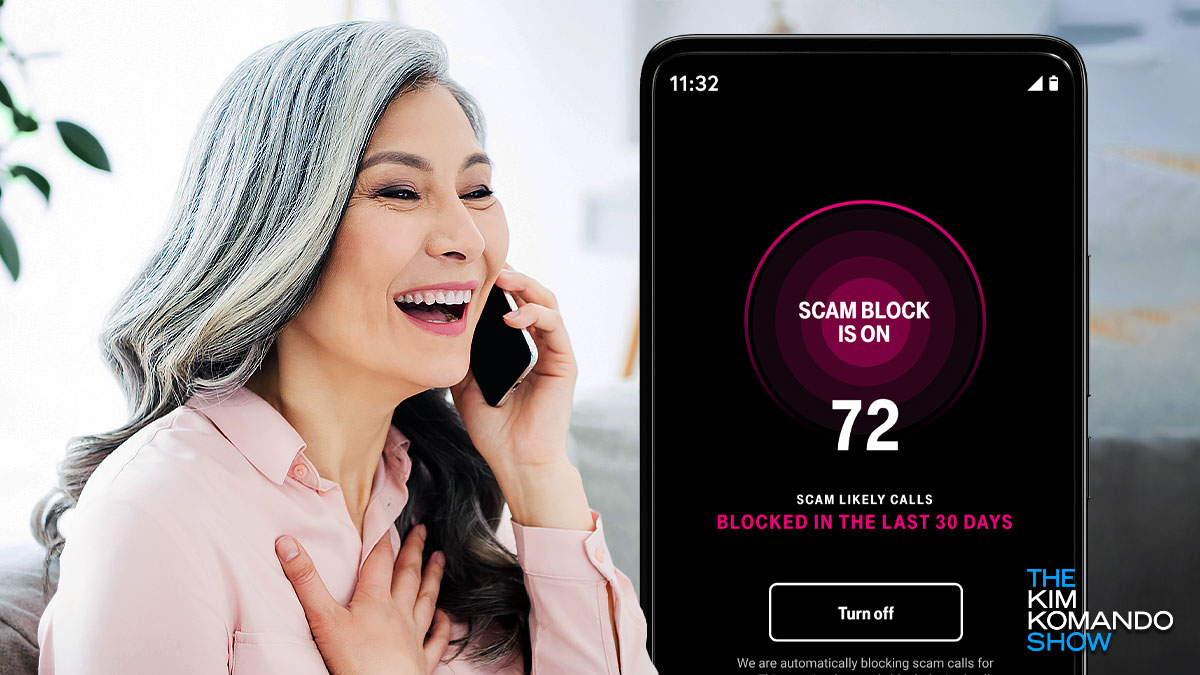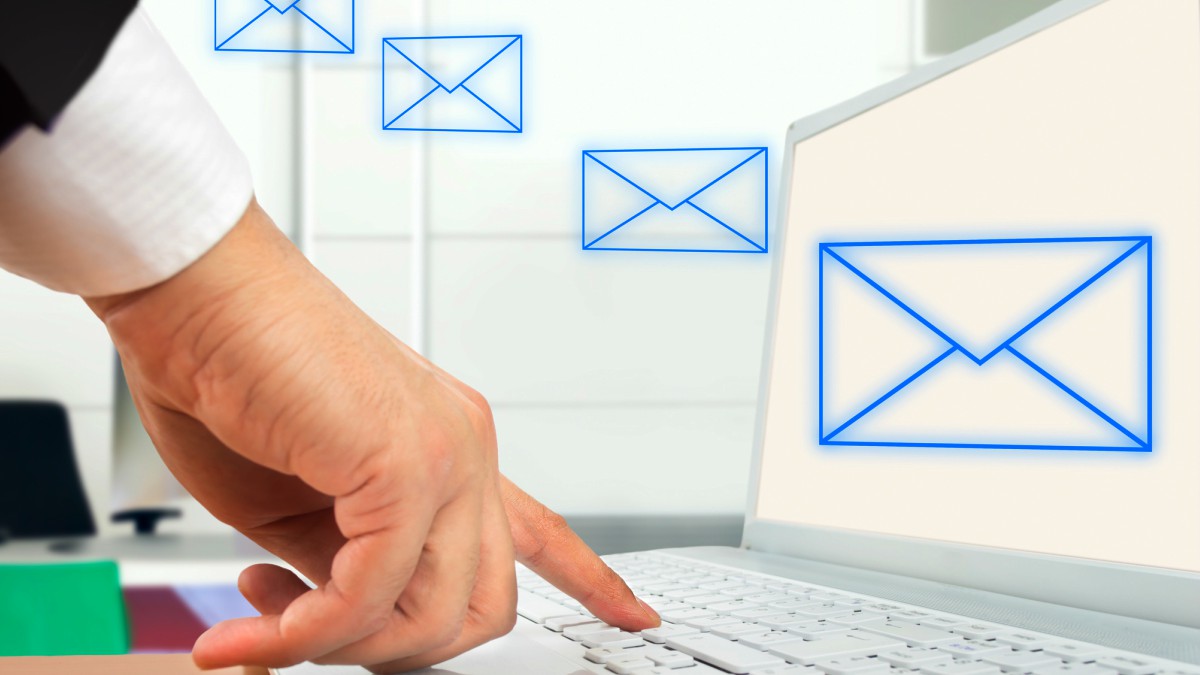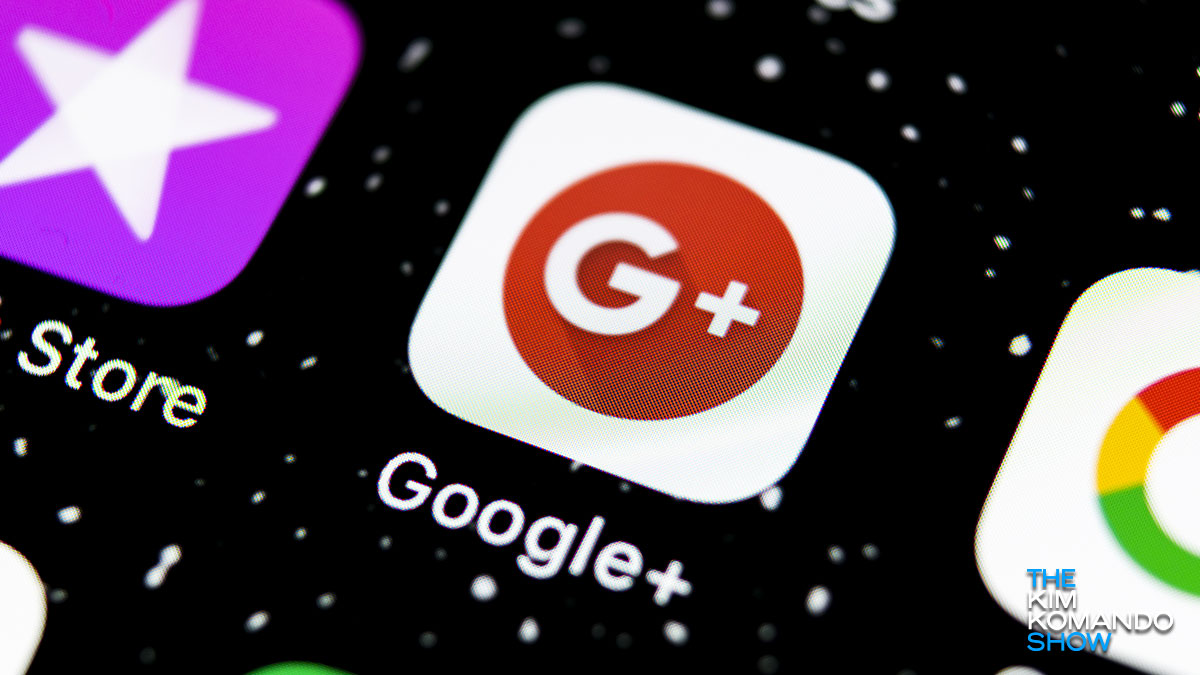You probably start the day clearing out emails that somehow made it through your spam filter. But what if it was you on the other side of that email?
Learn more about your ad choices. Visit megaphone.fm/adchoices

The average person receives about 121 emails a day, according to Campaign Monitor. Unfortunately, many of these emails are dreaded spam. Tap or click here to find out how to stop junk text messages and spam for good.
Whether spam emails are from hackers hoping to steal your information or useless companies you’ve accidentally signed up with, sorting through emails can be a pain. But, as one woman in Michigan recently found out, not all spam is worthless.
While most spam emails should be ignored, not all of them are full of hidden dangers. Don’t believe us? Well, not everything in your spam folder is spam, and this lottery winner can prove it.
A Michigan woman did what many of us do when we can’t find an expected email. She looked through her spam folder, only to find out she was now a millionaire. After purchasing a ticket for the Mega Millions lottery through a Facebook ad, she went on her merry way. It turns out she had purchased the winning ticket.
Her jackpot was $3 million. The information was tucked into an email that accidentally went to her spam folder. While this lucky lady was right to follow up on the email that said she’d won millions, that’s typically not the case.
We’ve all received emails telling us we’ve won money or have a check for thousands waiting for us. Despite this exceptional story, 99% of the time, those emails contain dangerous links and lead nowhere good.
That’s because hackers create emails designed to get you excited and make you click on links. Those lead to fake websites and prompt you to input personal information or, even worse, banking information so they can steal your hard-earned cash or sell your information on the Dark Web.
When it comes to checking emails, there are a few safety tips you should always follow to ensure you aren’t being lured into a scam or phishing attack:

These days, it feels like the scams never end. Of course, some of the most intrusive is the endless spam calls that bug you all day long.
Ever wonder why you get so many of those car-warranty robocalls? Here’s the reason.
You probably start the day clearing out emails that somehow made it through your spam filter. But what if it was you on the other side of that email?
Learn more about your ad choices. Visit megaphone.fm/adchoices

When life throws curveballs your way and you need a helping hand, never reach out through email. That’s according to a new report from Cornell University. They say the best way to get help is by asking someone in person.

Email phishing started back in the ’90s, and it’s been downhill from there. Open up the junk folder in your inbox to see what I mean. Just don’t click anything.
Think you’re tech smart? Tap or click here to take a quick phishing quiz.

Email has seriously sped up communications in work settings and in our personal lives. It’s really convenient — unless you have multiple email addresses.
Between needing different addresses for work and your personal life, you can have a lot of messages to check, ranging in degrees from crucial to spam. It can be hard to stay on top of it all.
You might be making a mistake that’s commonly thought of as a helpful way to stop the onslaught. In reality, it will only attract more annoying messages.
Learn more about your ad choices. Visit megaphone.fm/adchoices

Facebook has a history of betraying its users by not protecting their privacy. That’s why it’s crucial to take matters into your own hands if you choose to stick with the platform. Tap or click here for 10 Facebook privacy and security settings to change.

If you receive a confirmation email from UPS, watch out. It could be a trick. Scammers are posing as the United Parcel Service, shooting out fraudulent emails to trick you into clicking malicious links.
If you thought postal service scams were over in 2020, think again. Since the pandemic’s not over, people are still ordering packages more than ever before, which means we see all kinds of new shipping scams. Tap or click to see five of the most recent viral scams.

When it comes to apps, there’s plenty to choose from. Whether you’re using an Android device or an iOS phone or tablet, you have options for productivity apps, entertainment apps, sleep apps or even meditation apps.
Not all are destined to stay in the app stores for long, though. Both Google and Apple are known to remove apps that are problematic or violate their terms of service. Both Apple and Google pulled the social media app Parler recently, too.

Go to your email inbox and click on your spam folder. See those rows and rows of quarantined emails? Imagine them filling up your main inbox instead. Spam is a real issue for anyone with an email account.
While built-in spam filters for Gmail or other email clients can help temper the issue, they can’t do all of the heavy lifting. Spam emails can still slip through, not only wreaking havoc on your tidy inbox but also sometimes bringing phishing schemes or malware along with them. Tap or click here for a recent example.

Sextortion is a nasty kind of scam that too many people are unfortunately falling for. Most of the time, scammers are bluffing when they claim to have blackmail over their victims — but that hasn’t stopped them from racking up millions of dollars in stolen funds.

(Updated October 6, 2020 – If you plan on filing a claim to be a part of this settlement you must act fast. All claims must be filed by October 8, 2020. Read on for specific details of the class-action lawsuit.)
Class-action lawsuits are big news no matter how you slice it. Unlike ordinary suits, which typically feature a small number of claimants, class-action suits tend to include thousands of people when settlements are finally agreed upon.

Malware and spam are pretty common issues on the web. Most of us try our best to avoid infected sites, but it can be tough to do — especially when there are issues like Emotet to contend with. Bad actors behind Emotet are responsible for a storm of malware spread through spam emails that have been causing serious issues.

Ever get tired of annoying notifications clogging up your smartphone? These days, it seems like many apps are more intrusive than ever — and who has the time to manage alerts when new ones keep cropping up?
It’s not just smartphones, either. Windows PCs are plenty vulnerable to annoying notifications. Thankfully, there are settings you can adjust to work around this. Tap or click here to see how to manage notifications in Windows 10.

If emails seem like a safe and mundane part of your internet experience, you haven’t been paying attention. Using email is almost second nature for many at this point, but not everyone is aware of how easy it is to hijack emails for sinister purposes.

It seems as if most of us are faced with a never-ending deluge of spam these days. Whether it comes in the form of emails or robocalls, there’s no escaping that the huxters of the web are using this period of global lockdown to bombard people stuck in their homes with junk advertising and scams.

If you’ve checked your email any time recently, you’ve probably seen a plethora of junk messages relating to COVID-19, your bank and bills in need of attention. If you haven’t already guessed, most of these are spam and scams, but why are so many of these obvious traps slipping through our filters so easily?

As a communication tool, text messaging is up there at the top. Considering over 16 million text messages are transmitted every minute, it is easy to assume you have sent your fair share. Whether it’s reaching out to family and friends, or work-related, texts are an easy and immediate method of connecting with others.

There’s no hiding from it: Email signups are annoying as ever. And just when you think you’ve safely signed up to a legitimate website, your inbox is suddenly full of spam messages you never expected.
This is because many websites will sign you up for mailing lists when you verify your email address. To make matters worse, there isn’t much that can be done about it other than creating a separate email account for signups — but who even has time for that?